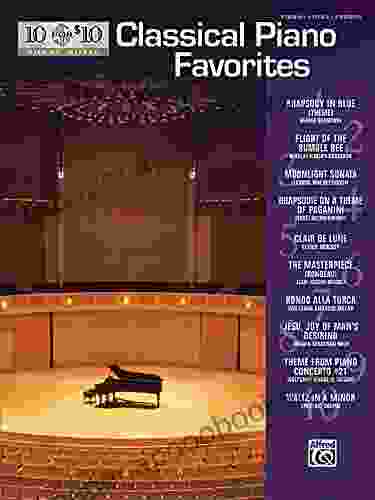Nationalism, Chauvinism, and Racism in European Musical Thought

Music is a powerful form of expression that can evoke a wide range of emotions, from joy and love to sadness and anger. It can also be used to express political and social ideas, and to promote or challenge certain ideologies.
4 out of 5
| Language | : | English |
| File size | : | 611 KB |
| Text-to-Speech | : | Enabled |
| Screen Reader | : | Supported |
| Enhanced typesetting | : | Enabled |
| Word Wise | : | Enabled |
| Print length | : | 259 pages |
In Europe, the rise of nationalism in the 19th century led to a renewed interest in folk music and other forms of traditional music. This was often seen as a way to connect with the past and to promote a sense of national identity.
However, this interest in folk music was often accompanied by a sense of chauvinism and racism. Many European composers and musicians believed that their own music was superior to the music of other cultures. This led to a number of racist and xenophobic attitudes towards music, which were often reflected in the way that it was performed and taught.
For example, the German composer Richard Wagner was a strong advocate for the superiority of German music. He believed that German music was the most expressive and powerful music in the world, and that it was destined to dominate the music of other cultures.
Wagner's racist and chauvinistic views were not unique among European composers of the 19th century. Many other composers, such as Antonín Dvořák, Edvard Grieg, and Jean Sibelius, also expressed similar views. This led to a climate of musical nationalism that was often hostile to the music of other cultures.
The rise of fascism in Europe in the 20th century further intensified the trend towards musical nationalism and chauvinism. Fascist regimes often used music to promote their own ideologies and to demonize other cultures. This led to a further decline in the popularity of non-Western music and to a renewed emphasis on the superiority of Western classical music.
In the aftermath of World War II, there was a growing backlash against the racism and chauvinism that had been so prevalent in European musical thought. Many composers and musicians began to challenge the idea that European music was superior to the music of other cultures. They also began to explore new ways of combining different musical traditions.
Today, there is a greater appreciation for the diversity of musical cultures around the world. However, the legacy of nationalism, chauvinism, and racism in European musical thought continues to shape the way that music is performed and taught. It is important to be aware of this history and to challenge the racist and xenophobic attitudes that are still present in the music world today.
How to Challenge Nationalism, Chauvinism, and Racism in Music
There are a number of things that can be done to challenge nationalism, chauvinism, and racism in music. Here are a few ideas:
- Educate yourself about the history of racism and chauvinism in music. This will help you to understand the roots of these attitudes and to see how they have shaped the way that music is performed and taught.
- Be critical of your own musical tastes and assumptions. Are you more likely to listen to music from your own culture than from other cultures? Do you believe that your own music is superior to the music of other cultures? Challenge these assumptions and open yourself up to new musical experiences.
- Support musicians and composers from diverse backgrounds. Attend concerts, buy their albums, and promote their work. This will help to create a more inclusive and diverse musical landscape.
- Speak out against racism and chauvinism in music. If you hear someone making racist or chauvinistic comments about music, don't be afraid to speak up. Let them know that their attitudes are unacceptable and that they have no place in the music world.
By taking these steps, you can help to create a more just and equitable musical world.
Nationalism, chauvinism, and racism have had a profound impact on European musical thought and practice. These attitudes have led to the devaluation of non-Western music and to a narrow and exclusive view of what constitutes "good" music.
It is important to challenge these attitudes and to create a more inclusive and diverse musical world. By educating ourselves about the history of racism and chauvinism in music, being critical of our own musical tastes and assumptions, supporting musicians and composers from diverse backgrounds, and speaking out against racism and chauvinism, we can help to create a more just and equitable musical world for all.
4 out of 5
| Language | : | English |
| File size | : | 611 KB |
| Text-to-Speech | : | Enabled |
| Screen Reader | : | Supported |
| Enhanced typesetting | : | Enabled |
| Word Wise | : | Enabled |
| Print length | : | 259 pages |
Do you want to contribute by writing guest posts on this blog?
Please contact us and send us a resume of previous articles that you have written.
 Book
Book Novel
Novel Page
Page Chapter
Chapter Text
Text Story
Story Genre
Genre Reader
Reader Library
Library Paperback
Paperback E-book
E-book Magazine
Magazine Newspaper
Newspaper Paragraph
Paragraph Sentence
Sentence Bookmark
Bookmark Shelf
Shelf Glossary
Glossary Bibliography
Bibliography Foreword
Foreword Preface
Preface Synopsis
Synopsis Annotation
Annotation Footnote
Footnote Manuscript
Manuscript Scroll
Scroll Codex
Codex Tome
Tome Bestseller
Bestseller Classics
Classics Library card
Library card Narrative
Narrative Biography
Biography Autobiography
Autobiography Memoir
Memoir Reference
Reference Encyclopedia
Encyclopedia Mark Eisner
Mark Eisner Gayle Laakmann Mcdowell
Gayle Laakmann Mcdowell Tracey Devlyn
Tracey Devlyn Rachel Singer Gordon
Rachel Singer Gordon Gary Brizendine
Gary Brizendine Gary M Toban
Gary M Toban James Taris
James Taris H J Ramsay
H J Ramsay Gracey Larson
Gracey Larson James Martin
James Martin George W Dowdall
George W Dowdall Gail Radford
Gail Radford Gauri Kolhe
Gauri Kolhe Michael Morpurgo
Michael Morpurgo Gordon Edgar
Gordon Edgar Gillian Bradshaw
Gillian Bradshaw Viola Davis
Viola Davis Suet Fan Regina Wong
Suet Fan Regina Wong Gail Honeyman
Gail Honeyman Tricia O Malley
Tricia O Malley
Light bulbAdvertise smarter! Our strategic ad space ensures maximum exposure. Reserve your spot today!

 Walter SimmonsUnveiling the Hidden Truth: How Progressive White People Perpetuate Racial...
Walter SimmonsUnveiling the Hidden Truth: How Progressive White People Perpetuate Racial...
 Elias MitchellBofuri: I Don T Want To Get Hurt So I Ll Max Out My Defense Vol 2 (light...
Elias MitchellBofuri: I Don T Want To Get Hurt So I Ll Max Out My Defense Vol 2 (light... George Bernard ShawFollow ·4.5k
George Bernard ShawFollow ·4.5k Gus HayesFollow ·2.2k
Gus HayesFollow ·2.2k Ernest PowellFollow ·10.1k
Ernest PowellFollow ·10.1k John GrishamFollow ·12.2k
John GrishamFollow ·12.2k Cody BlairFollow ·3.1k
Cody BlairFollow ·3.1k Shane BlairFollow ·12.7k
Shane BlairFollow ·12.7k Floyd RichardsonFollow ·4.4k
Floyd RichardsonFollow ·4.4k Clark CampbellFollow ·12.7k
Clark CampbellFollow ·12.7k

 Ken Follett
Ken FollettDiscover the Enchanting World of Classical Piano with "10...
A Symphony of Timeless...

 Cody Russell
Cody RussellTheo On The Ice Boston Bay Vikings: A Hockey Adventure...
Theo On The Ice...

 Nathaniel Hawthorne
Nathaniel HawthorneBach for Easy Guitar: Unleash the Genius of the Baroque...
Johann Sebastian Bach, the undisputed...

 Brenton Cox
Brenton CoxAfrican Recipes For Every Concern: Delicious,...
Embark on a Culinary Journey to the Heart of...

 Lawrence Bell
Lawrence BellEasy Guitar With Notes Tab: Your Ultimate Guide to...
Unlock the World...

 Brenton Cox
Brenton CoxCarter On The Ice: A Thrilling Sports Novel
Synopsis ...
4 out of 5
| Language | : | English |
| File size | : | 611 KB |
| Text-to-Speech | : | Enabled |
| Screen Reader | : | Supported |
| Enhanced typesetting | : | Enabled |
| Word Wise | : | Enabled |
| Print length | : | 259 pages |








